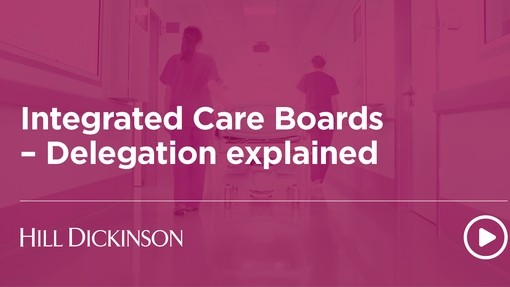Provider Selection Regime – Processes

Provider Selection Regime – Processes
The Provider Selection Regime sets out five processes for selecting providers. Here we summarise where each of these processes should, or could, be used and summarise key elements of each of them. In certain circumstances it is mandatory to follow a particular process, in others, commissioners have discretion as to which one to apply. Further detail about each of the processes can be found in the Regulations, draft guidance, or other resources, all available on NHS England’s Provider Selection Regime webpage. There are also detailed transparency requirements in relation to decisions made about which process to apply.
Direct Award Process A
- Where the relevant circumstances apply, this process must be used.
- Circumstances are where there is an existing provider for services, and that provider, or group of providers, is the only capable provider.
- Guidance confirms that even where there is an alternative provider in the market, Direct Award Process A can still be used where that provider does not represent a realistic alternative for the commissioner’s specific requirements.
- Process may not be used to establish a new service.
- Process cannot be used to establish a framework agreement.
- Must apply provider selection regime Principles.
- Transparency requirements apply – must publish an award notice and keep records of decision-making including prescribed details.
- Examples given in the guidance of services to which this process may apply include: 999 emergency ambulance services, urgent mental health crisis services.
Direct Award Process B
- Where the relevant circumstances apply, this process must be used.
- Circumstances are where patients have an unrestricted choice of providers and all providers meeting the commissioner’s criteria are awarded a contract.
- Commissioner must have arrangements in place in respect of the services to enable providers to express an interest in providing services.
- Process cannot be used where a commissioner chooses to voluntarily (ie no legal right to choice) establish a pool of providers from which a patient can choose and that pool is restricted to certain providers – most suitable provider or competitive process must be used in these circumstances.
- Process cannot be used to establish a framework agreement.
- Must apply provider selection regime Principles.
- Transparency requirements apply – must publish an award notice and keep records of decision-making including prescribed details.
- Examples given in the guidance of services to which this process may apply include: elective services led by consultant / mental health care professional, elective services where there is no legal right to choice but the commissioner has decided to offer unrestricted choice, such as eye health services, podiatry, continuing health care.
Direct Award Process C
- A key area of departure from the previous regime, aimed at providing more flexibility / continuity.
- Commissioners have the option to use this process where neither Direct Award process A nor B applies, and other relevant circumstances are present.
- Circumstances are:
- there is an existing provider for the services;
- that existing provider is satisfying the original contract; and
- is likely to satisfy the proposed new contract; and
- services are not changing considerably.
- Process cannot be used to arrange a new service.
- Note that the process is optional – even where these circumstances apply a commissioner may still choose to test the market and use a different process.
- Process cannot be used to establish a framework agreement.
- Must apply provider selection regime Principles and Key Criteria.
- Regulation 6 includes a test for when a contract may be considered to have changed considerably (summarised below with more detail in the guidance) precluding use of this process. There are two options for determining this – either:
change renders the proposed contracting arrangements materially different in character to the existing contract when the contract was entered into;
ORchange is attributable to a decision made by the commissioner; and
lifetime value of the proposed new contract is at least £500,000 higher than the lifetime value of the existing contract when it was entered into; and
lifetime value of the proposed new contract is at least 25% higher than the lifetime value of the existing contract when it was entered into.
Most Suitable Provider Process
Another departure from the previous position, potentially most likely to be subject to challenge.
- Applies where neither Direct Award process A nor B applies, and other relevant circumstances are present.
- Circumstances are where the commissioner considers that it can identify the most suitable provider without running a competitive exercise.
- Can be used for a new service.
- Guidance confirms that the process is designed to enable ‘reasonable and proportionate decision-making’.
- Process cannot be used to establish a framework agreement.
- Must apply provider selection regime Principles and Key Criteria and the decision to use process must take into account commissioner’s assessment of the provider landscape.
- Transparency requirements apply including - must publish details of its intended approach in advance, an intention to award notice, observe a standstill period, publish an award notice and keep records of decision-making including prescribed details.
Competitive Award Process
Applies where neither Direct Award process A nor B applies, and commissioner does not wish to follow Direct Award Process C or the Most Suitable Provider Process.
- Must be used to establish a framework agreement.
- Detail of procedure set out in Regulations / Guidance and the commissioner may also determine additional procedures.
- Must apply provider selection regime Principles and Key Criteria.
- Transparency requirements apply including – must publish notice for competitive tender, intention to award notice, observe a standstill period confirmation of award notice and records of decision-making including prescribed details.






